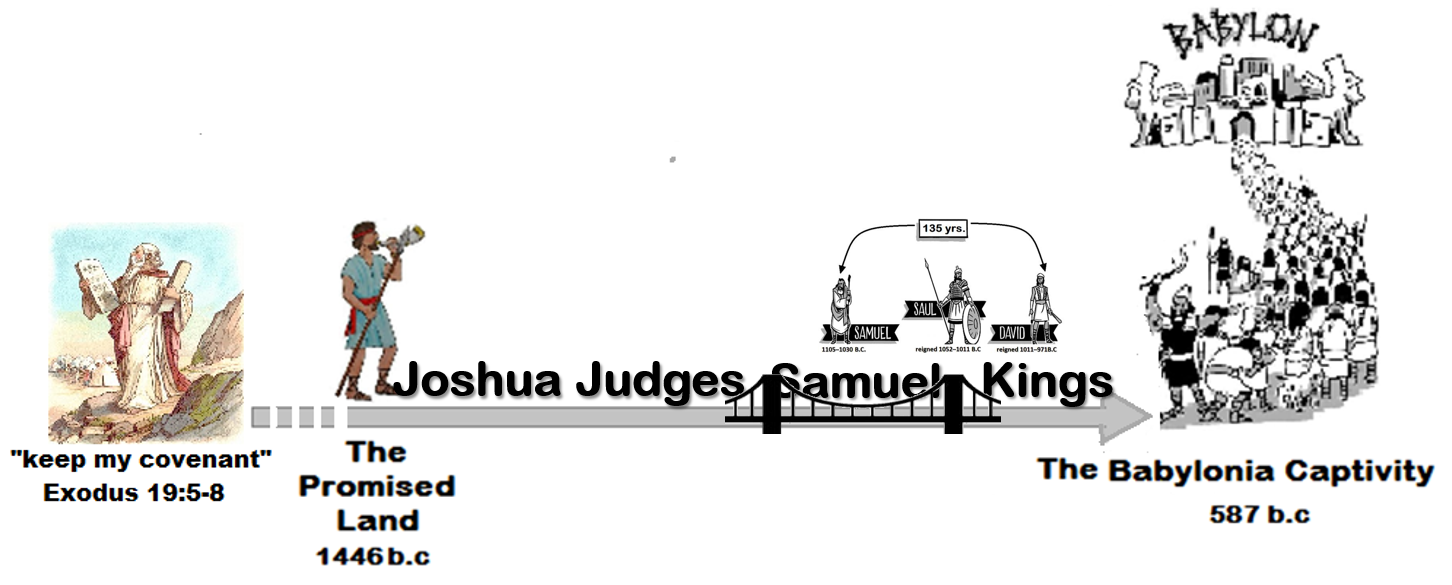The First and Second Books of Kings were originally only one book in the Hebrew canon. In the Septuagint (LXX) and the Vulgate, the Third and Fourth Books of Kings are the First and Second Books of Samuel in the KJV and other modern translations. It must be remembered that the division between the books of Kings and Samuel is equally artificial, and that, in point of fact, the historical books commencing with Judges and ending with 2 Kings present the appearance of one work, giving a continuous history of Israel from the time of Joshua to the death of Jehoiachin.

The books of Kings contain the history from David’s death and Solomon’s accession to the destruction of the kingdom of Judah and the desolation of Jerusalem in 586 B.C., with a supplemental notice of an event that occurred after an interval of twenty-six years — namely, the liberation of Jehoiachin, the son of Jehoiakim, from his prison in Babylon — and a still further extension to Jehoiachin’s death, the time of which is not known, but which was probably not long after his liberation. The history, therefore, includes the whole time of the Israelite monarchy, including the reigns of Saul and David.
In the threefold division of the Scriptures by Judaism, the books of Kings are referred to as “The Prophets.” They are frequently quoted or alluded to by our Lord and his apostles (Matt. 6:29; Matt. 12:42; Luke 4:25, Luke 4:26; Luke 10:4; compare 2Kings 4:29; Mark 1:6; compare 2Kings 1:8; Matt. 3:4, etc.).